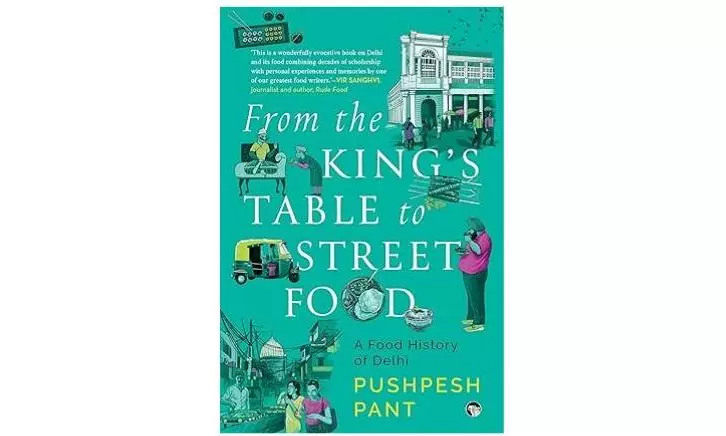Book Review | Delhi: A meal-by-meal exploration

I have a confession to make: I have never been to Delhi in all my 24 years. The closest I have come was a brief stopover at Indira Gandhi International Airport on my way to the UK last year. And yet, Delhi, in all its vivid and sprawling complexity, feels oddly familiar. It finds me in various ways — Connaught Place through stories shared by Indian friends at Oxford, Hauz Khas through conversations with poet and dramatist J.P. Das about his literary life which led us there often, a 16th-century Delhi through Madhulika Liddle’s captivating Muzaffar Jang mysteries and her more recent explorations of Delhi’s gardens. Pushpesh Pant’s From the King’s Table to Street Food: A Food History of Delhi only adds to this sense of familiarity. It is a book that evokes a city as much through the mind as through the senses, revealing Delhi’s cultural essence meal by meal.
Cultures are often shaped by their most essential elements, and few things are as universal and personal as food. Through it, Pant’s From the King’s Table traces the cultural shifts in recent memory, as well as historical upheavals of national and international importance, painting a picture of the enduring traditions of Delhi with remarkable ease. What’s more surprising is how light and effortless the reading experience feels — despite the weight of the subject. “Perhaps gastronomy flourishes best where food carries the lightest load of spiritual meanings,” writes anthropologist Mary Douglas. This perhaps, though stretched a fair bit out of its original context, Pant’s gastro-historical account proves as true.
When one imagines a conventional history of Delhi, names like William Dalrymple would be sure to pop up. However, with the rise of much more genre-fluid “unconventional” histories, the idea of such accounts does not remain limited to historiographical narratives. Thus, it creates room for more works like this book. From the King’s Table to Street Food is far from a simple retelling of what is and has been on Delhi’s plates. The appeal of the book comes from its focus not being limited to food (and) history of Delhi, but also a parallel yet intertwined exploration of myths and legends related to either of the two facets of his subject matter. Unlike a historian who is often forced into a pursuit of deeper underlying truths in mythologies, Pant finds himself at liberty to treat them as their own truths adding to the culture of Delhi. Thus, Pant’s own creatively curated menu resulting from Indraprastha’s grand stature that attracted the finest ingredients across an ancient Bharatvarsh is as legitimate as Babur's love for food and memoirs, resulting in recorded food history of the time. What emerges here, consequently, is a portrait of Delhi not just as a city, but as a living, breathing mix of influences — each biryani, each kebab carrying with it a story. Pant’s memoir in food is thus catered not to the specialist but to the average person, who bears even a minute interest in one among the numerous spheres that the book falls into.
From the King’s Table to Street Food
By Pushpesh Pant
Speaking Tiger
pp. 392; Rs 699

